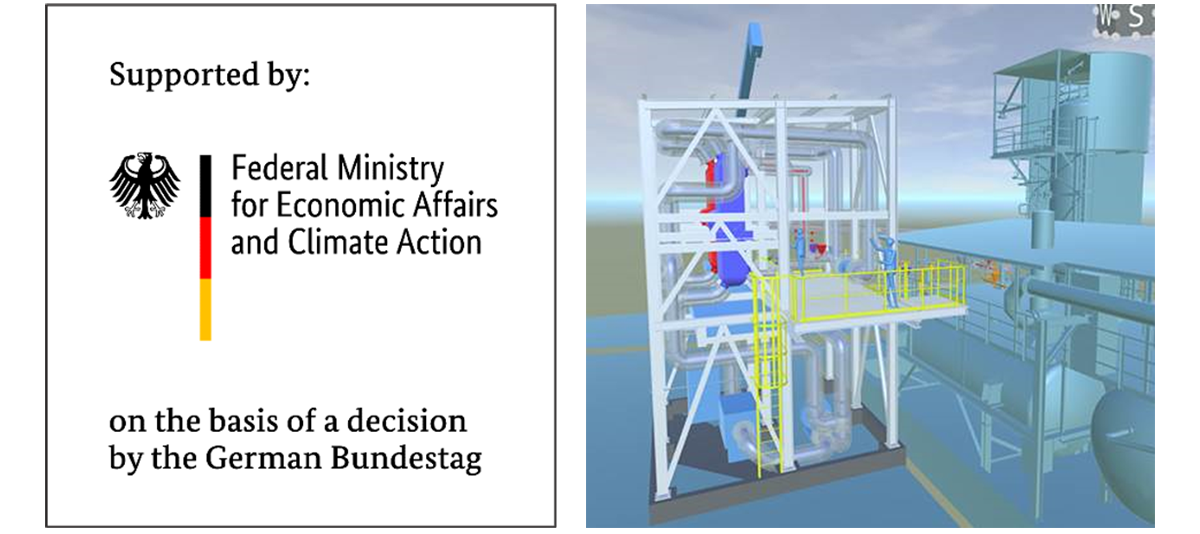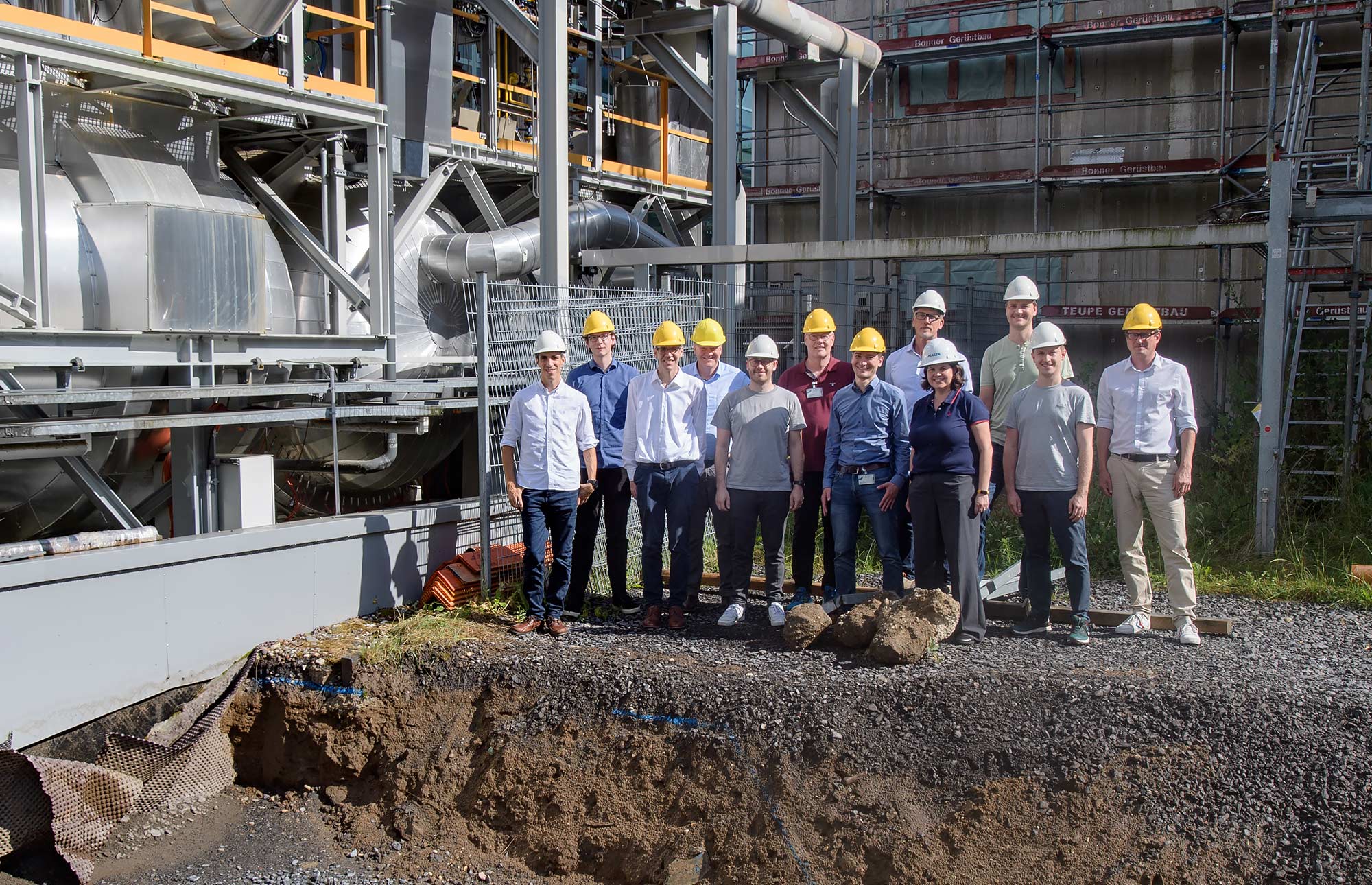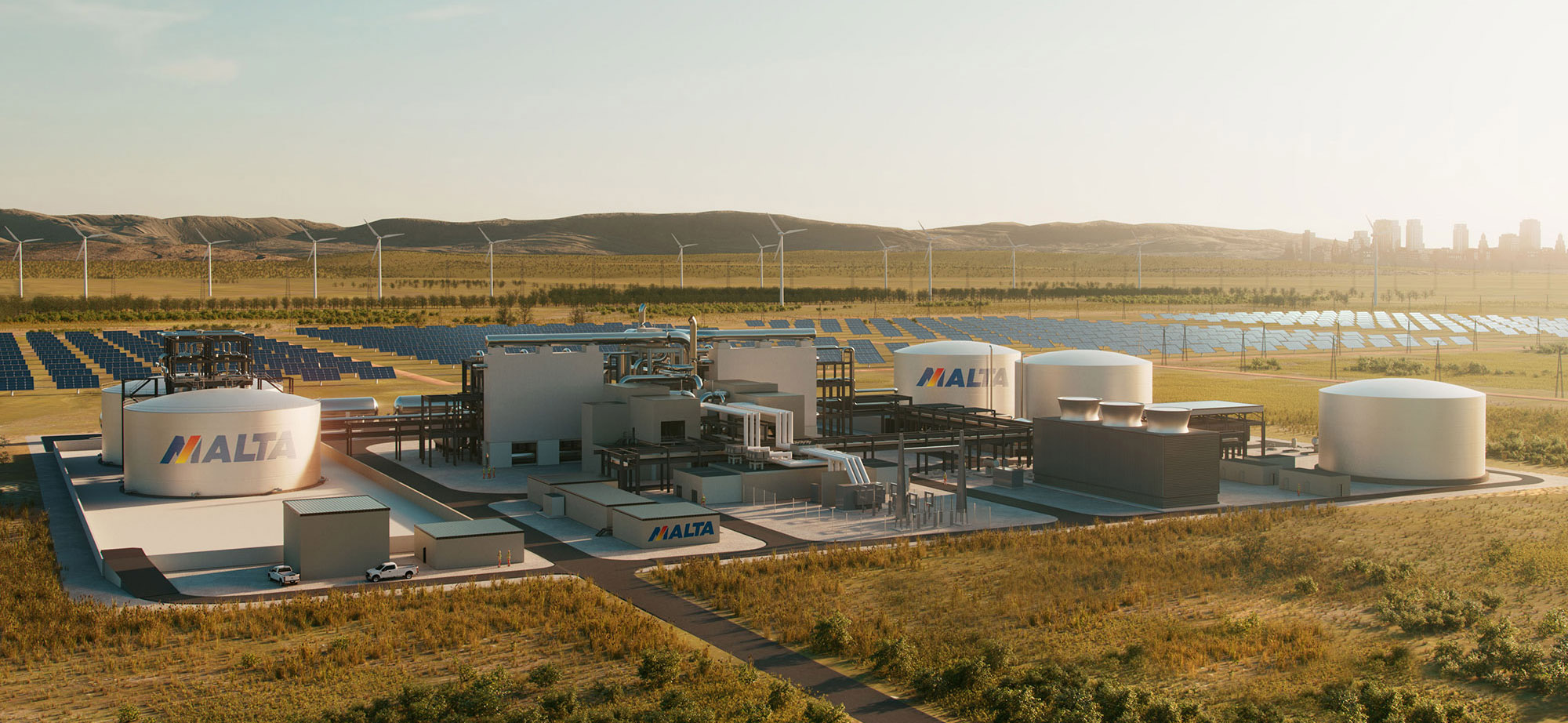Store2REPower Project Breaks Ground for Full-Scale Heat Exchanger Qualifications
Malta Hochtemperatur Wärmepumpen Stromspeicher GmbH, an affiliate of Malta Inc, a global leader in long-duration energy storage, announced the groundbreaking of the expansion of DLR’s world-leading test facility for thermal energy storage in molten salts (TESIS) for the full-scale qualification of the innovative, Alfa Laval-built heat exchangers, as part of their Store2REPower project. Led by Malta, in collaboration with Deutsches Zentrum für Luft- und Raumfahrt (DLR), Alfa Laval, and Siemens Energy, the Store2REPower project, which started in September 2023, is funded by the German Federal Ministry for Economic Affairs and Climate Protection (BMWK funding number 03EE5166A) to support Germany’s efforts to achieve Paris Agreement climate targets and to be climate-neutral by 2045.

For the full scale validation of Alfa Laval’s innovative heat exchangers, DLR’s TESIS facility will be expanded to include a new two-story testing platform that is connected to the existing molten salt tanks and will house the new equipment, including two of the full scale heat exchangers. Construction started with the initial groundbreaking on June 17th, 2024, and is expected to be completed together with commissioning in May 2025, so that qualification testing can begin in June 2025. The development and validation of the full-scale heat exchangers represent a very important step towards the deployment of the first of a kind commercial highly efficient heat pump electricity and heat storage system.

“We are honored to partner with the DLR Institute of Engineering Thermodynamics as a leader in the field of thermal storage plants, to explore how Malta’s pumped thermal energy storage technology can accelerate Germany’s power and heat transition from fossil fuels to renewable energy. We are thrilled to be moving forward with earthworks and excited by the rapid progress of the project. This important work will identify how best to meet Germany’s decarbonization goals, create jobs in German turbomachinery manufacturing, and deliver a just transition by creating clean energy construction and operations jobs for the nation’s current energy workforce.” said Ramya Swaminathan, CEO of Malta.
Sigmund Brielmaier, Head of LDES at Siemens Energy, states: “Besides being the turbomachinery supplier for Malta’s technology, we are keen to contribute with our expertise to this project that enables the energy transition. LDES is key to decarbonize the energy system and this project offers a great opportunity to explore new ways to decarbonize combined heat and power applications.”
Prof. Dr. André Thess, Director of the Institute of Engineering Thermodynamics at DLR, said: “As a globally leading research institution in the field of molten salt technology the DLR-Institute of Engineering Thermodynamics will be happy to contribute to the successful development of this important large-scale long-duration storage technology.”
Sven Schreiber, Managing Director of Alfa Laval Mid-Europe added: "Energy storage is key in the transition towards renewable energy sources. Alfa Laval is proud to be part of this significant project in which our pioneering and highly efficient heat exchangers, developed specially for Malta's energy storage process, will be fully tested under actual operational conditions. It is a milestone in the pathway towards competitive, scalable long-term energy storage, and the transformation of the German and European energy markets towards a sustainable future.”

Malta’s innovative pumped-thermal energy storage (PTES) technology is a like-for-like replacement for fossil-fueled thermal power plants. It generates 100-MW and more of clean dispatchable power and can also supply clean heat for district heating and industrial processes. The heat pump uses variable renewable electricity to charge the thermal storage tanks, which store the energy for hours to days. When needed, a heat engine reconverts the thermal energy into clean power and heat, returning more than 90% of the original energy to the grid and heat consumer with little-to-no degradation over its 30+ year lifespan.
As an LDES asset, Malta’s technology allows utilities to reliably deploy vastly more wind and solar power without the risks of unavailability or curtailment of excess generation. As a clean power plant, it delivers the same grid resilience and reliability services that fossil-fueled plants do but wind and solar do not. With among the best-available round-trip efficiencies, lowest system degradation, and longest plant life, Malta’s clean power and heat plant allows energy consumers to make up lost ground on decarbonization goals.
MALTA Inc. Communications
media@maltainc.com